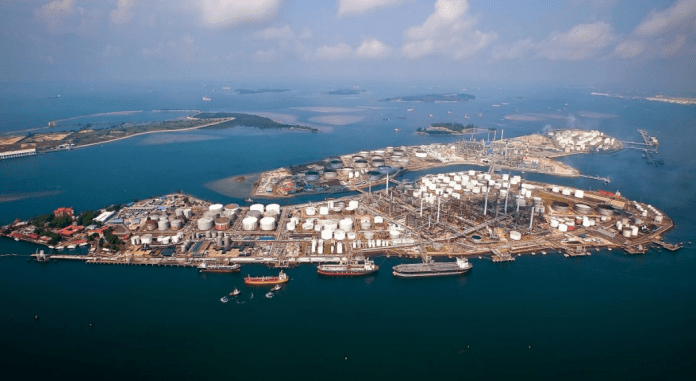Royal Dutch Shell (Shell) has started on a four-year project to construct a digital twin of its Pulau Bukom petrochemical manufacturing site in Singapore. On completion in 2024, and in pilot between times, the virtual replica of the Pulau Bukom facility will be the first digital twin the oil and gas company has built. Shell is betting on a 25 percent jump in productivity, reliability and safety from the work.
Shell called it a “pilot to transform the ways of work”, and said the new virtual model will respond in real time to inputs from up to 20 different technology platforms. Engineers will be able to test troubleshooting options in real-time in the digital twin, before putting them live in the plant. They will also be in position to receive and respond to live data in sundry augmented and virtual reality (AR and VR) platforms.
This will improve operational efficiency, prevent downtime, reduce maintenance and maintenance costs, and allows for more effective collaboration between experts and operators. The need for local staff to step into the plant will be reduced. Pulau Bukom will be “safer, more competitive, and [more] innovative” as a result, said Shell. By the start of 2025, all critical field operations at the site will be performed on tablets.
The Pulau Bukom facility, positioned as an integrated oil and petrochemicals hub in Asia Pacific, is a go-to working testbed to trial innovation and digitalisation projects. The move by Shell aligns with the Singapore government’s focus on Industry 4.0, which has rolled-out since 2014 under its Smart Nation initiative, covering city governance and the industrial sector.
Shell said it is “grooming a strong pool of technical talent” at the site, to support digital transformation, with about 140 staff already put through “hackathons and digital bootcamps”. All staff at Pulau Bukom, including management and technicians, will be trained to incoming Industry 4.0 technologies within two years. Over 6,000 annual “training hours” have been scheduled-in from 2021, as part of the digital drive.
A “full rollout across the island” is expected in four years, as workforce capabilities and digital assets mature, it said.
Hugues Bourgogne, vice president of manufacturing for Shell in Singapore and the Philippines and general manager of the Pulau Bukom plant, said: “We are committed to making our Singapore sites on Bukom and Jurong Island globally competitive by combining human capabilities with advanced digitalisation technologies, to truly transform the ways we work. The launch of the digital twin technology is a strong testimony of how we are implementing potentially ground-breaking solutions in a traditional environment to improve productivity and efficiency safely.”
Narayanan Valayaputtur, projects and engineering manager at Shell, said: “Shell Bukom’s digitalisation plans, anchored by the digital twin, is a shakeup of the plant. With the setup of a virtual plant through the digital twin, and by equipping staff on site with a tablet, we are creating a new culture of allowing work to be done remotely with the provision of complex data at their fingertips.
“This is an exciting time as we are not just building digital assets, but also a new digital culture. We are telling our staff to pursue their interest of coding applications to make their jobs easier, to think about becoming data scientists or software engineers, all while working in a manufacturing plant with our playground of data.”
Damian Chan, executive vice president at the Singapore Economic Development Board, said: “We are encouraged that Shell has taken this bold step of piloting the digital twin solution in Singapore, setting a strong example of how the energy and chemicals sector can adopt technology to move towards Industry 4.0 standards. Shell’s approach of investing in digital processes, technologies and training is timely, especially with the acceleration of digitalisation in established industries today. [It] will help advance Singapore’s push for digital transformation across sectors.”

